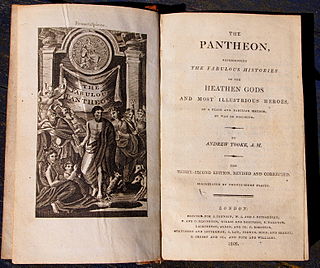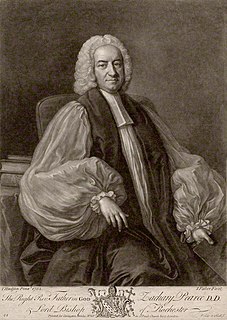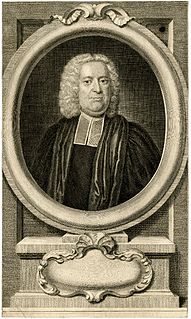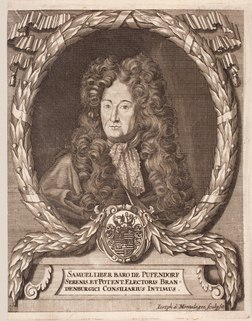
Jonathan Swift was an Anglo-Irish satirist, essayist, political pamphleteer, poet and cleric who became Dean of St Patrick's Cathedral, Dublin.
William Wollaston was a school teacher, Church of England priest, scholar of Latin, Greek, and Hebrew, theologian, and a major Enlightenment era English philosopher. He is remembered today for one book, which he completed two years before his death: The Religion of Nature Delineated. He led a cloistered life, but in terms of eighteenth-century philosophy and the concept of natural religion, he is ranked with British Enlightenment philosophers such as Locke, Berkeley, and Hume.

Richard Bentley was an English classical scholar, critic, and theologian. He was Master of Trinity College, Cambridge.

Thomas Hearne or Hearn was an English diarist and prolific antiquary, particularly remembered for his published editions of many medieval English chronicles and other important historical texts.

John Freind, FRS, was an English physician.

Tooke's Pantheon, full title Tooke's Pantheon of the Heathen Gods and Illustrious Heroes, was a work on Greek mythology. Authored by the Jesuit François Pomey (1619-1673), the Pantheum mythicum seu fabulosa deorum historia became the mythological handbook of the following two centuries.
The Reverend William Lubbock MA BD (Cantab) was an English divine, Fellow of Caius College, Cambridge, and Church of England clergyman. He founded the famous English family of Lubbock.
The Reverend Thomas Pyle was a Church of England clergyman and religious controversialist.

Zachary Pearce, sometimes known as Zachariah, was an English Bishop of Bangor and Bishop of Rochester. He was a controversialist and a notable early critical writer defending John Milton, attacking Richard Bentley's 1732 edition of Paradise Lost the following year.
Benjamin Motte was a London publisher and son of Benjamin Motte, Sr. Motte published many works and is well known for his publishing of Jonathan Swift's Gulliver's Travels.
William Dakins was an English academic and clergyman, Gresham Professor of Divinity and one of the translators of the King James Bible.
Willem Sewel was a Dutch Quaker historian, of English background.
Henry Pemberton was an English physician and man of letters. He became Gresham Professor of Physic, and edited the third edition of Principia Mathematica.
Thomas Broughton (1704–1774), was an English clergyman, biographer, and miscellaneous writer, whose works include the libretto to Handel's Hercules.

John Ward (1679?–1758) was an English teacher, supporter of learned societies, and biographer, remembered for his work on the Gresham College professors, of which he was one.

William Richardson (1698–1775) was an English academic and antiquary, Master of Emmanuel College, Cambridge from 1736.

Samuel Wright (1683–1746) was an English dissenting minister.

Thomas Stackhouse (1677–1752) was an English theologian and controversialist.

John Davies (1679–1732) was an English cleric and academic, known as a classical scholar, and President of Queens' College, Cambridge from 1717.




















